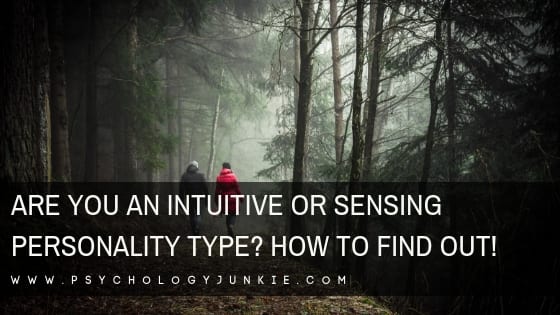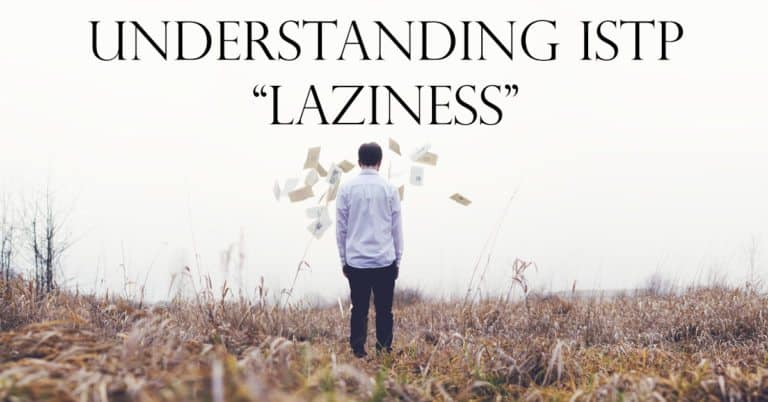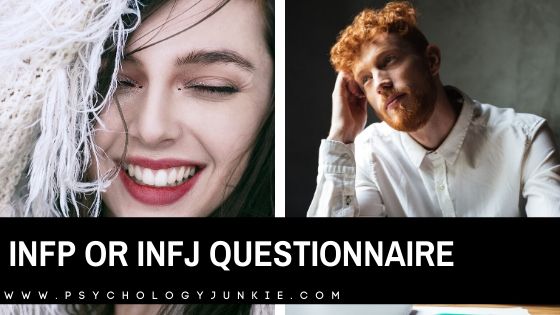What does the “N” Stand for in the 16 Myers-Briggs® Personality Types?
As an MBTI® practitioner, I’m often asked questions about the letter preferences and what they mean. One of the letter preferences that confuses people the most is the N or S preference. How does this single letter preference shape our personalities, our perceptions, and ultimately, our interactions with the world around us? Join me as we dig into this interesting topic!
What does the N in MBTI Stand For?
The ‘N’ in Myers-Briggs theory stands for iNtuition. Those with a preference for intuition rely on hunches, future possibilities, implications, and abstract theories. They are often seen as imaginative and innovative, preferring to focus more on what could be rather than what is.

People with an ‘S’ preference prefer Sensing. These types prefer what is tangible, realistic, and provable via facts and lived experience. They are often seen as grounded and down-to-earth; observant of practical realities.
Carl Jung, one of the founding fathers of modern psychology and a huge influence on the MBTI®, spoke eloquently about intuition. He described it as “perception via the unconscious… the hunches and inspirations that come to us out of the blue.” For individuals with an ‘N’ in their personality type, this kind of unconscious, future-oriented thinking is a familiar and comfortable way of processing the world.
Table of contents
- What does the N in MBTI Stand For?
- Examples of Intuition vs Sensation in Action
- How Intuition and Sensation Impact Decisions
- The Eight iNtuitive Personality Types in the Myers-Briggs System
- Differences Between Introverted Intuition (Ni) and Extraverted Intuition (Ne)
- Ne and Ni: Differences in Orientation
- What Are Your Thoughts?
- Other Articles You Might Enjoy:
- References:
Estimated reading time: 9 minutes
Examples of Intuition vs Sensation in Action
Consider two individuals at an art museum, one having a preference for Intuition (N) and the other for Sensation (S) in their Myers-Briggs personality type.
The Intuitive person might look at a piece of abstract art and immediately start constructing theories about what the artist was trying to communicate. They might consider the broader cultural context of when and where the artwork was created and how it speaks to future societal trends. This person is engaging their Intuition, tapping into future possibilities, and reading between the lines.
In contrast, the Sensing individual would likely focus more on the tangible details of the artwork. They might appreciate the specific colors the artist used, the texture of the paint on the canvas, or the precise technique employed. They might consider the artwork in a more literal and present-focused way, appreciating what is right in front of them. This person is utilizing their Sensing preference, connecting with the present reality, and savoring the concrete details.

How Intuition and Sensation Impact Decisions
Picture this scenario: Two colleagues, one with an iNtuitive preference (let’s call them Alex) and one with a Sensing preference (we’ll call them Taylor), are faced with making a strategic decision for their company.
Alex, leaning into their iNtuitive preference, envisions the long-term implications of the decision. They take into account trends in the industry, potential shifts in customer behavior, and other abstract factors. They consider the decision in the context of future possibilities, even if those aren’t immediately apparent.
On the other hand, Taylor, relying on their Sensing preference, focuses on the data immediately available. They scrutinize the current financial statements, consider the immediate reactions of stakeholders, and examine concrete, observable factors to guide their decision-making. They prioritize what is tangible and real in the present moment.
In this example, both Alex and Taylor bring valuable perspectives to the decision-making process. The iNtuitive approach anticipates future possibilities, while the Sensing approach grounds the decision in practical, immediate realities. Both are necessary for balanced, well-informed decisions.
The Eight iNtuitive Personality Types in the Myers-Briggs System
- INFJ (Introverted, iNtuitive, Feeling, Judging): Known as the “Mystic,” they are insightful visionaries with a deep understanding of human motivations and a drive to help others.
- ENFJ (Extraverted, iNtuitive, Feeling, Judging): Referred to as the “Mentor,” these individuals are charismatic leaders who effortlessly draw others into their passionate pursuits.
- INFP (Introverted, iNtuitive, Feeling, Perceiving): The “Dreamer” is imaginative and introspective, guided by a firm set of inner values.
- ENFP (Extraverted, iNtuitive, Feeling, Perceiving): “Visionaries” are free-spirited and creative, always ready to explore new ideas and possibilities.
- INTJ (Introverted, iNtuitive, Thinking, Judging): The “Strategist” is a strategic thinker with an intense foresight into how things will develop over time.
- ENTJ (Extraverted, iNtuitive, Thinking, Judging): Known as the “Director,” they are assertive leaders who excel at devising plans and strategies.
- INTP (Introverted, iNtuitive, Thinking, Perceiving): The “Prodigy” is deeply analytical and fascinated by understanding how theories fit together.
- ENTP (Extraverted, iNtuitive, Thinking, Perceiving): Referred to as the “Trailblazer,” they are intellectually quick and enjoy innovating and forging new paths in creation.
Differences Between Introverted Intuition (Ni) and Extraverted Intuition (Ne)
Introverted Intuition (Ni) and Extraverted Intuition (Ne) are two distinctly different ways in which ‘iNtuitive’ individuals in the MBTI system perceive the world and process information.
Introverted Intuition (Ni) is focused inwards, on the internal world of reflections, ideas, and concepts. Individuals with a dominant Ni, such as INFJs and INTJs, tend to gravitate towards a singular vision or idea. They have a knack for seeing the big picture and anticipating future outcomes. This ability lends them a sense of foresight that can seem almost uncanny to others. They often rely on this intuitive understanding to navigate their lives, making decisions based on their internal predictions and perceptions. They may sometimes struggle to explain their insights, as their intuition often emerges from deep within their subconscious, making it difficult to translate into external, concrete terms.
Introverted Intuition (Ni) at Work: A Simple Example
Imagine a young child named Lily. Lily’s mother has always been a cheerful person, the life of the party, constantly laughing and making everyone around her smile. However, Lily begins to notice subtle changes in her mother’s behavior – a certain tiredness in her eyes, a faint tremble in her laughter, and periods of silence that were not characteristic of her. While others around her see the same cheerful person they’ve always known, Lily, with her Introverted Intuition (Ni), senses a deeper, unseen issue. She cannot articulate her concerns, as they are not based on any concrete, expressible observations, but rather a “gut feeling” – an intuitive understanding that goes beyond the evident. Lily’s Ni allows her to perceive that her mother is, in fact, struggling with a personal issue, an understanding that she arrives at well before anyone else in the family comes to a similar realization.
Here is a list of Myers-Briggs® personality types where Introverted Intuition (Ni) plays a significant role:
- INFJ (Introverted, iNtuitive, Feeling, Judging) – These individuals are deep thinkers with a knack for deeply empathizing with others. Their primary function is Introverted Intuition, which allows them to perceive patterns and long-term possibilities.
- INTJ (Introverted, iNtuitive, Thinking, Judging) – These individuals are innovative problem solvers. Their dominant Ni helps them to envision future implications of their actions, making them extremely strategic and forward-thinking.
- ENFJ (Extraverted, iNtuitive, Feeling, Judging) – These individuals have Extraverted Feeling as their dominant trait, but their auxiliary function is Introverted Intuition. This aids them in understanding and guiding others towards a higher calling.
- ENTJ (Extraverted, iNtuitive, Thinking, Judging) – These individuals are natural-born leaders with Extraverted Thinking as their primary function and Ni as their secondary function. This allows them to envision future possibilities and develop strategies to achieve their goals.
Extraverted Intuition (Ne) is much more outwardly focused. Individuals with dominant Ne, such as ENFPs and ENTPs, have a broad, expansive approach to intuition. They excel at brainstorming and are able to see multiple possibilities and perspectives in any given situation. They thrive in the realm of speculation and enjoy playing with ideas, often jumping from one to another in rapid succession. Unlike their Ni counterparts, Ne individuals are energized by the external world, and their intuition is stimulated by their interactions with their surroundings. They are typically open-minded, flexible, and excited about exploring multiple pathways.
Extraverted Intuition (Ne) at Work: A Storyteller’s Example
Let’s imagine a professional storyteller named Deion. Deion has an uncanny ability to spin tales that captivate his listeners, unfurling a narrative tapestry that’s rich with surprises, twists, and turns. His skill lies not merely in his command over language, but more specifically in his ability to envision a plethora of potential storylines and characters. When presented with a basic plot, he doesn’t see a linear narrative but rather a vast landscape of possibilities. For instance, when given the premise of a knight rescuing a trapped dragon, Deion doesn’t merely narrate a straightforward tale of heroism. Instead, he envisions multiple unique scenarios — the knight and dragon becoming friends, the dragon refusing rescue in favor of self-reliance, the knight realizing he’s the real ‘monster’ in the story. Deion’s Extraverted Intuition (Ne) is on full display as he explores these possibilities, giving his stories an unpredictable and intriguing edge. His intuition is stimulated by the world around him, drawing inspiration from his interactions, conversations, and experiences, and transposing them into his storylines. This ability to breathe life into a multitude of perspectives, possibilities, and scenarios is the hallmark of Extraverted Intuition at work.
Here is a list of Myers-Briggs® personality types where Extraverted Intuition (Ne) plays a significant role:
- ENFP (Extraverted, iNtuitive, Feeling, Perceiving) – These individuals are warm, enthusiastic and fiercely individualistic. Their primary function is Extraverted Intuition, which allows them to connect disparate ideas, explore various possibilities and see potential in others.
- ENTP (Extraverted, iNtuitive, Thinking, Perceiving) – These are quick thinkers who thrive on innovation. Their dominant Ne helps them to construct a mental playground where they can freely navigate among ideas and possibilities.
- INFP (Introverted, iNtuitive, Feeling, Perceiving) – These individuals have Introverted Feeling as their dominant trait, but their auxiliary function is Extraverted Intuition. This aids them in expanding their internal value system to include new possibilities and perspectives.
- INTP (Introverted, iNtuitive, Thinking, Perceiving) – These individuals are philosophers and architects of ideas. With Extraverted Intuition as their secondary function, they are excellent at seeing patterns and possibilities in the external world.
Ne and Ni: Differences in Orientation
Although both Introverted and Extraverted Intuition allow individuals to perceive beyond the immediate, tangible reality and into the realm of abstract theories and potential possibilities, they differ in their orientation. While Ni-types (NJs) tend to focus on a singular, deep insight, Ne types (NPs) want to explore a broad array of possibilities.
What Are Your Thoughts?
In conclusion, whether you’re an intuitive or a sensor, extraverted or introverted intuitive, these insights into your personality can help you to know yourself more deeply. It can also help you with communication. I’ve written articles about communication between these two types here: The Secrets to Communication Between Sensors and Intuitives.
I hope this exploration of intuition has provided valuable insights into your own cognitive preferences. Now, I’d love to hear from you. Have you identified whether you’re a Sensor or an iNtuitive? How does it influence your daily life, your decision-making, your interactions? Please share your thoughts and experiences in the comments section!
Other Articles You Might Enjoy:
Why Sensors and Intuitive Drive Each Other Crazy
What is a Sensor, and How to Tell if You Are One
The Decision-Making Blind Spot of Every Myers-Briggs® Personality Type
References:
MBTI® Manual: A Guide to the Development and Use of the Myers-Briggs Type Indicator® Instrument by Isabel Briggs Myers, Mary H. McCaulley, Naomi L. Quenk, Allen L. Hammer (CPP, Inc. 1998)
Gifts Differing by Isabel Briggs Myers (CPP, Inc. 1980, 1995)







